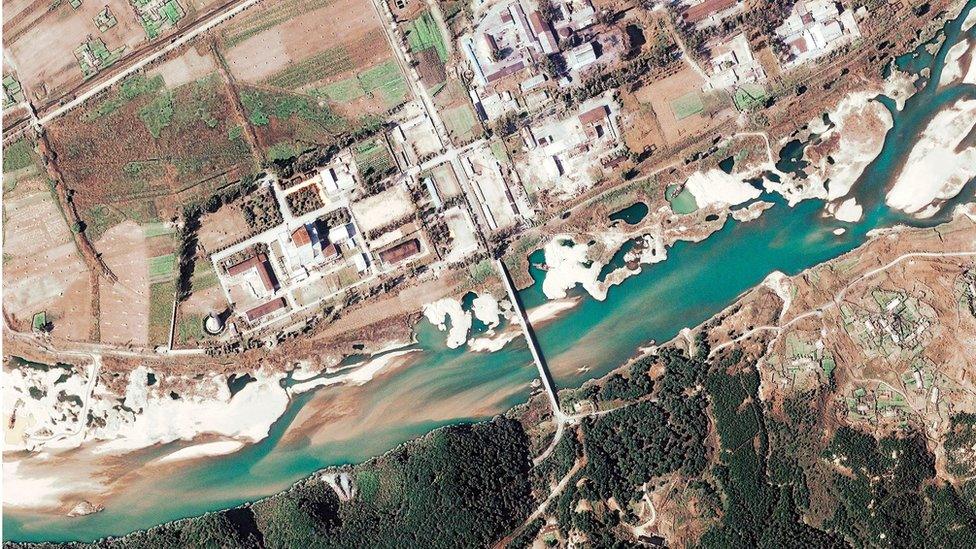Hawaii alert: Employee who sent missile warning reassigned
- Published
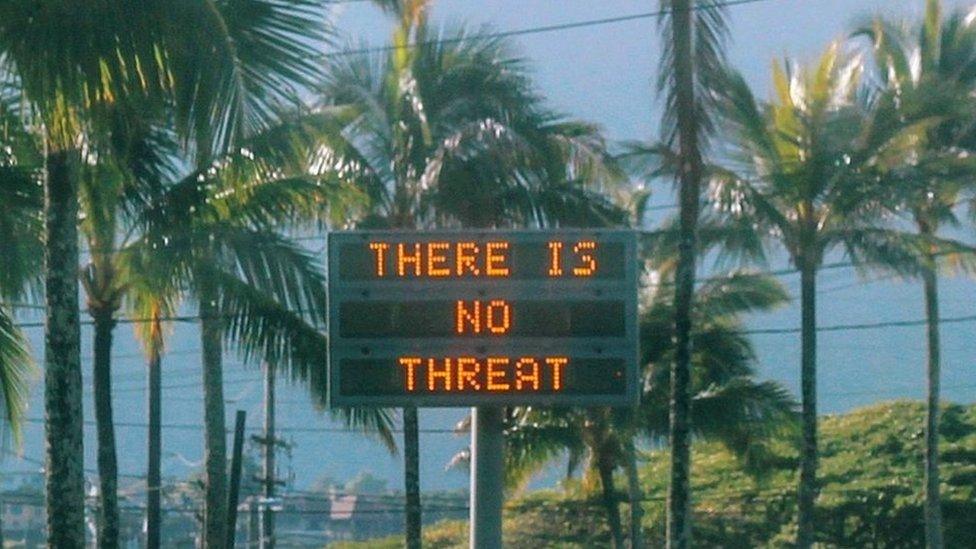
It took 38 minutes for the mistake to be corrected and for Hawaiians to be told there was no danger
The unnamed employee who mistakenly sent a missile alert which caused panic in the US state of Hawaii on Saturday has been temporarily reassigned to other duties, a US official has said.
People across the state received text messages warning of an imminent attack.
The US media regulator says the mistake was "absolutely unacceptable".
Hawaii did not have "reasonable safeguards or process controls" in place to prevent the false alert, it said.
The 38-minute delay in issuing the correction made it worse, the Federal Communications Commission (FCC) said.
Why was the alert sent?
The error occurred when, during a drill after a shift change, an employee made the wrong selection from a drop-down computer menu, picking the real-life missile alert instead of the test option, officials at Hawaii's Emergency Management Agency (EMA) said.
To prevent a repeat, two employees are now required to activate the alert system - one to issue the warning and another to confirm it, they said.
The agency also now has a way of issuing an immediate false-alarm notice in the event of a mistake, they added.
People were warned to take shelter
Residents and visitors to Hawaii were shocked to receive the false alert of an incoming ballistic missile, sent to their mobile phones early on Saturday morning. The alert was also broadcast on TV and radio stations.
Mobile phone users received the message at 08:07 (18:07 GMT): "Ballistic missile threat inbound to Hawaii. Seek immediate shelter. This is not a drill."
The eventual correction said: "There is no missile threat or danger to the state of Hawaii."
One man told US broadcaster CBS that he started running when the alarm sounded
The alert system is in place because of the proximity of Hawaii to potential North Korean missiles.
Why was Hawaii already on edge?
North Korea's missile and nuclear programme is seen as a growing threat to the United States. Alaska and Hawaii are the US states closest to the country.
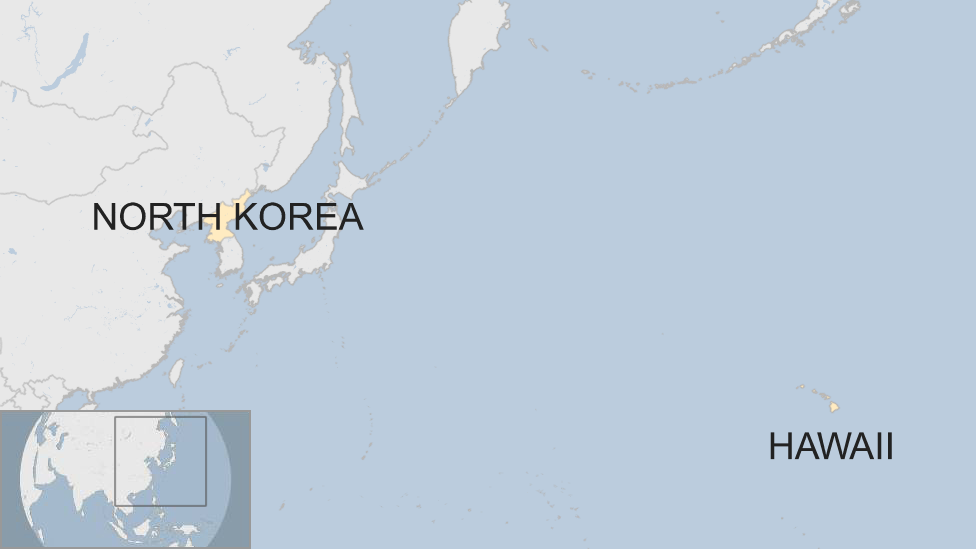
In September, Pyongyang carried out its sixth nuclear test.
Last month, Hawaii's Star-Advertiser reported that a missile launched from North Korea could strike the state within 20 minutes of launch.
So Hawaii has reintroduced Cold War-era warning sirens. During a test last month, it was reported that 93% of them worked properly, although some could hardly be heard and 12 mistakenly played the ambulance siren, external.
The siren has a different tone from a natural disaster warning siren
- Published14 January 2018
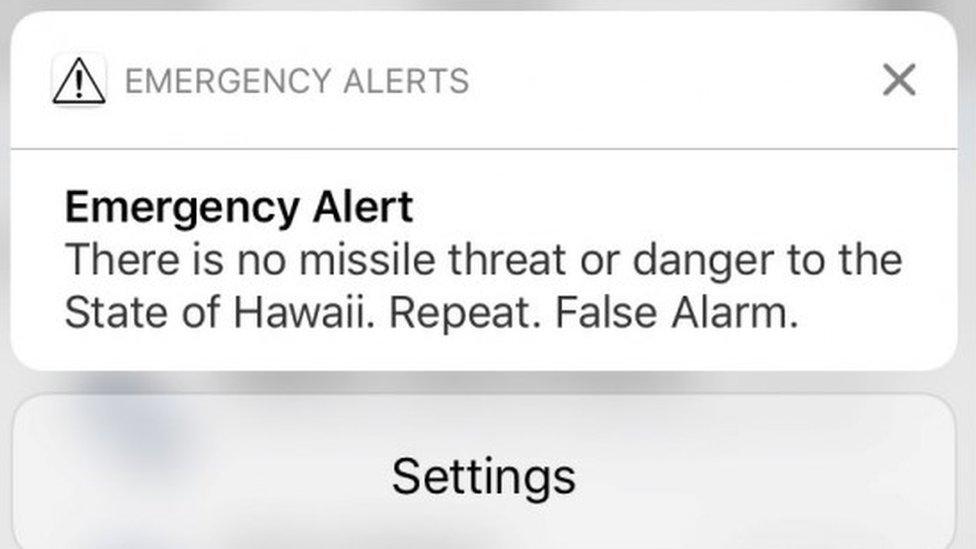
- Published14 January 2018
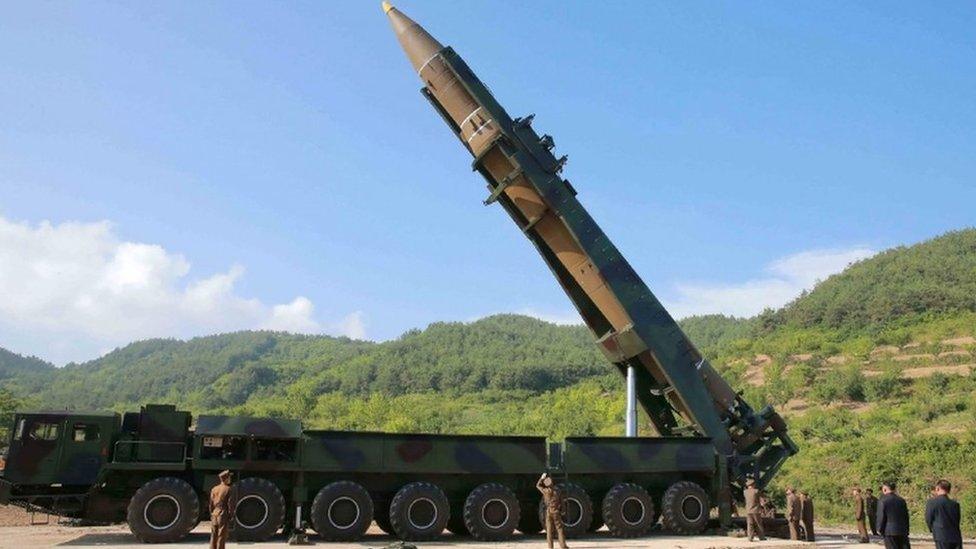
- Published14 January 2018
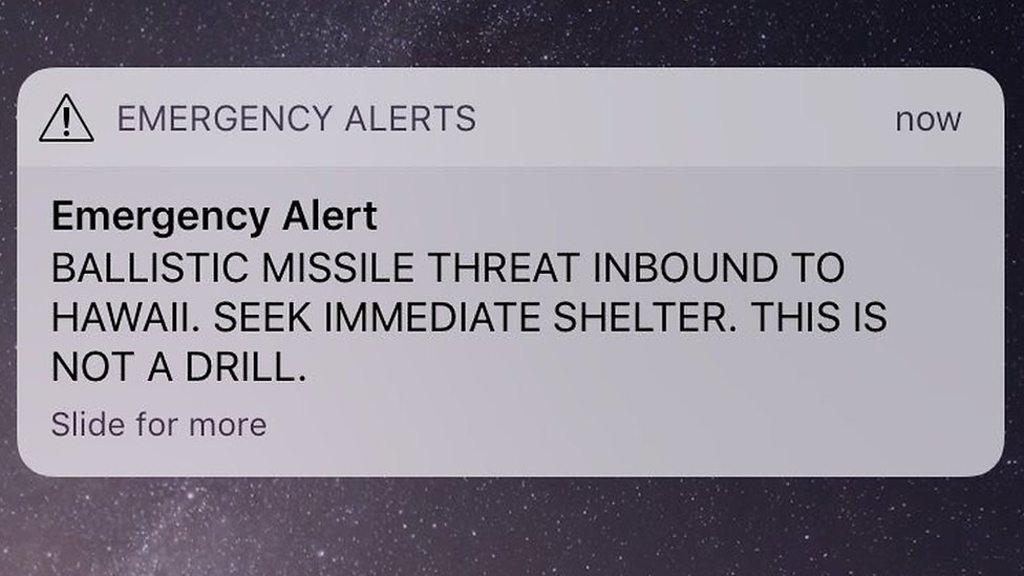
- Published13 January 2018
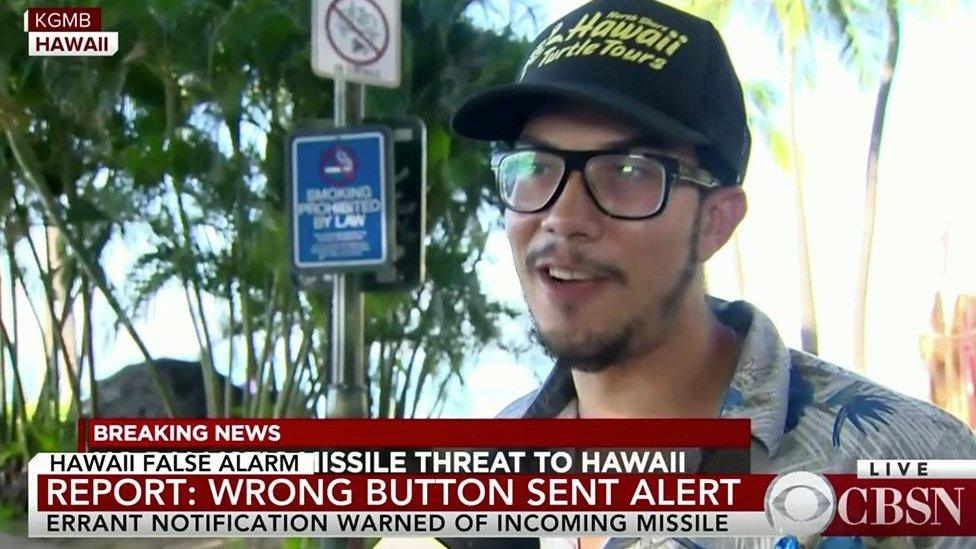
- Published13 January 2018
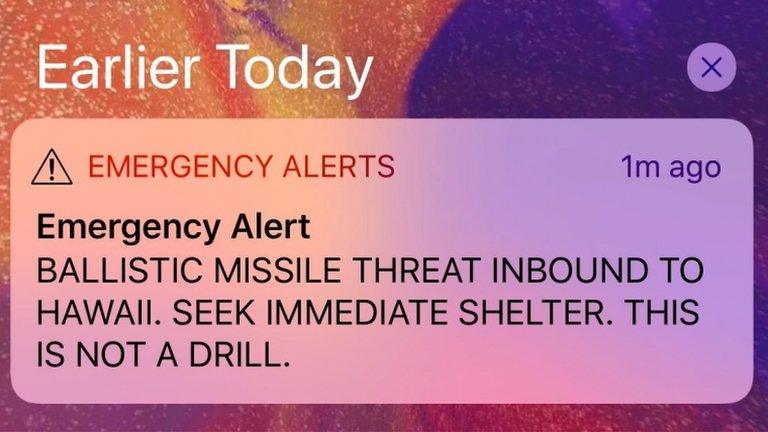
- Attribution
- Published14 January 2018
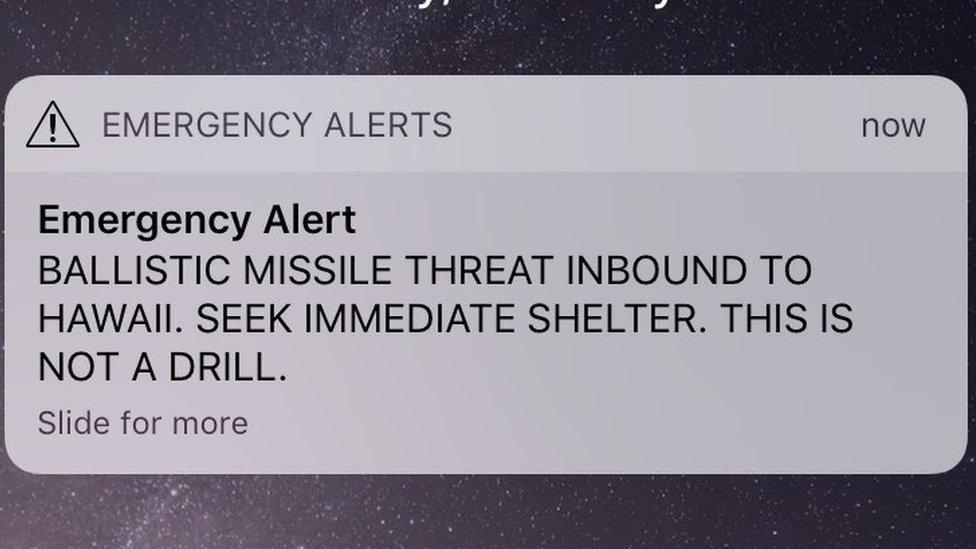
- Published2 December 2017
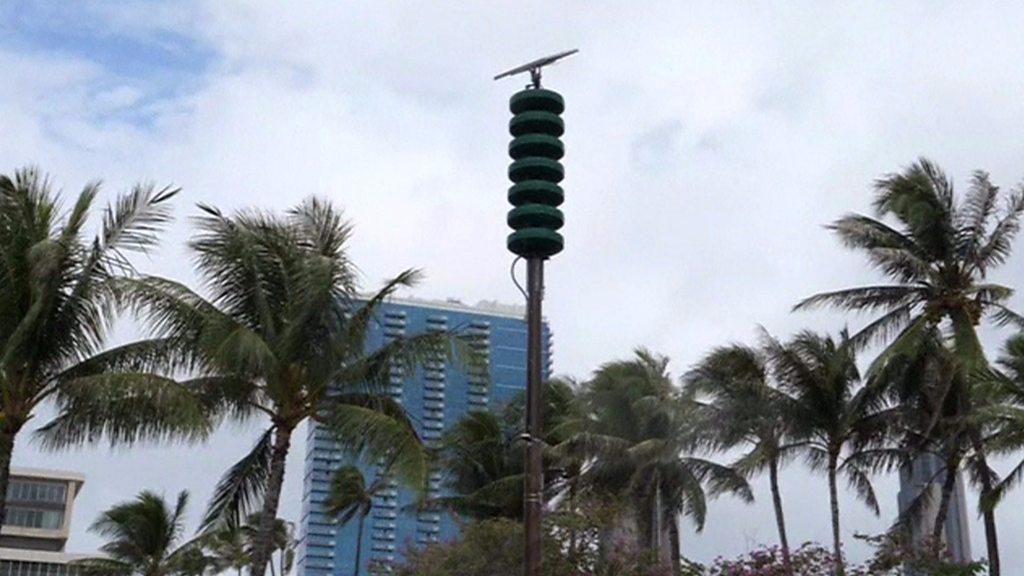
- Published10 August 2017
- Published10 August 2017
